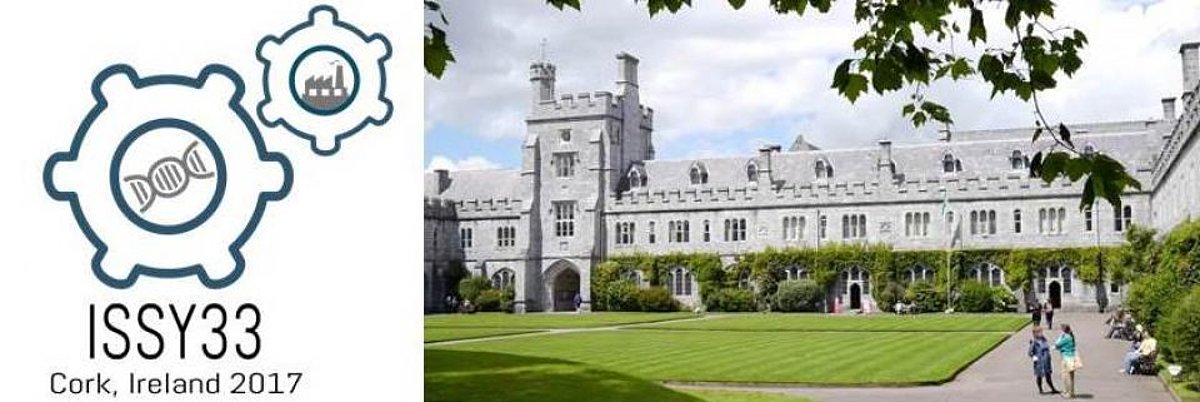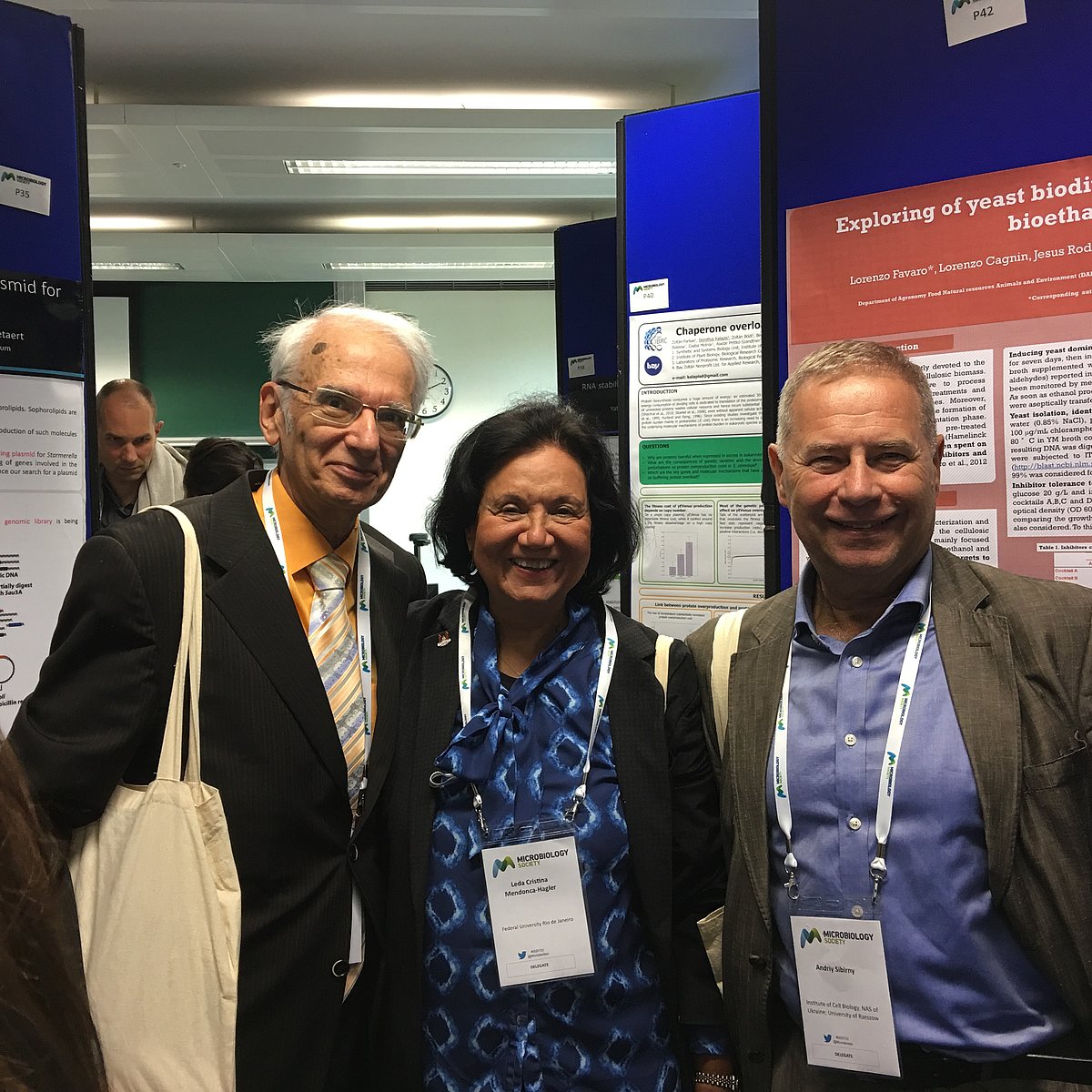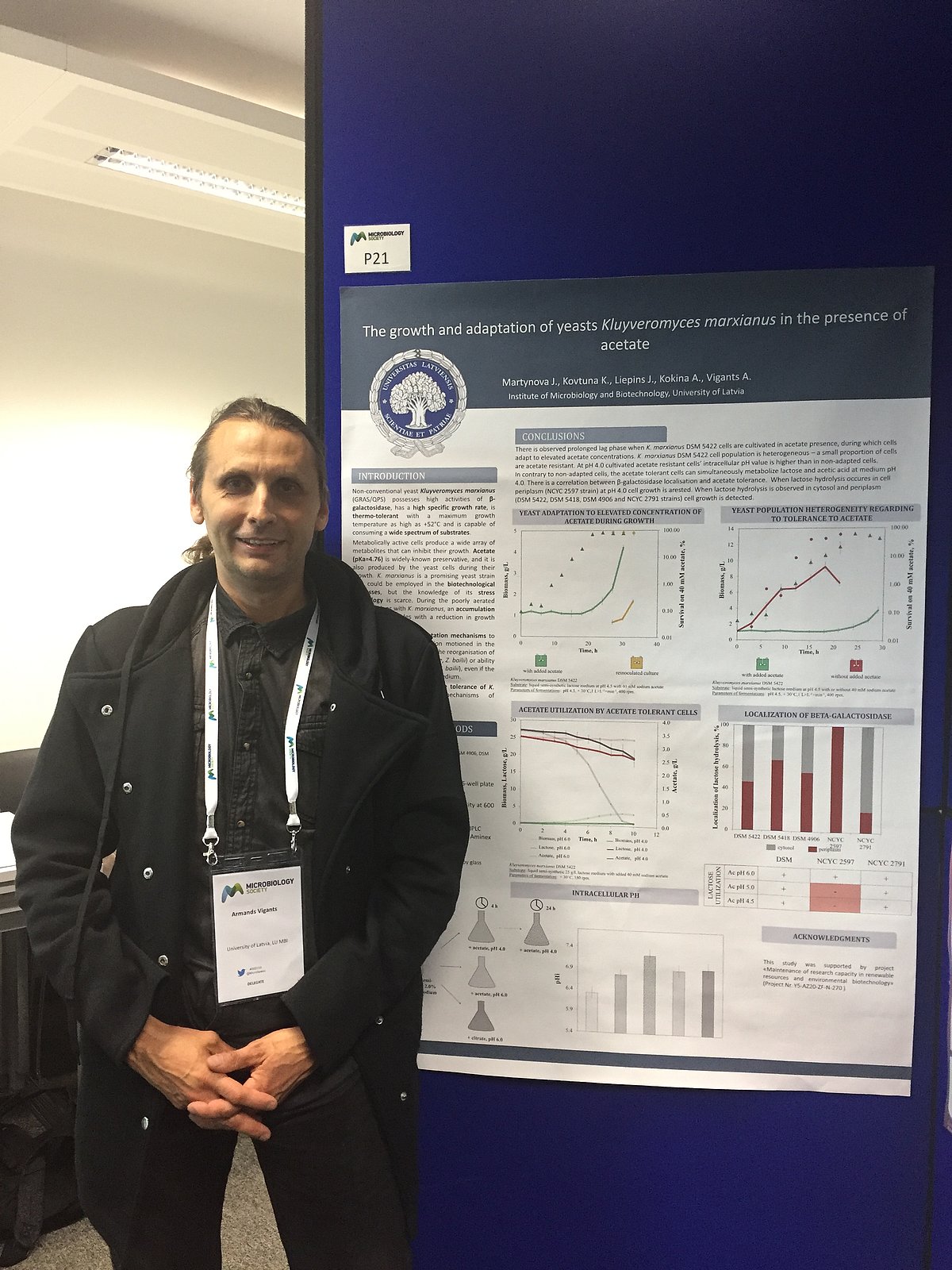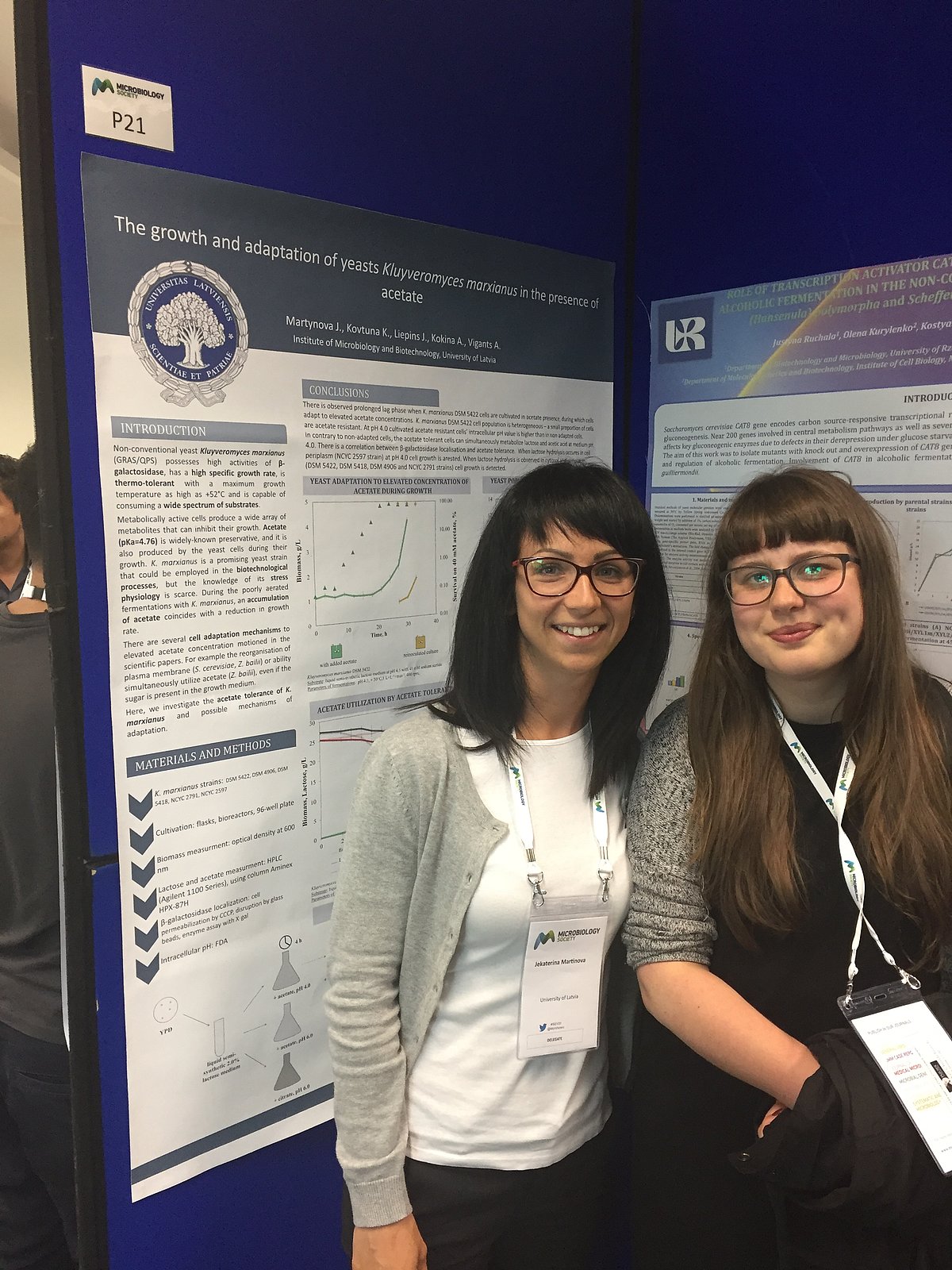The 33rd International Specialised Symposium on Yeast (ISSY33), organised under the auspices of the International Commission on Yeasts, with support from the Microbiology Society, took place at University College Cork, Cork, Ireland from 26th until 29th of June. The title of the meeting was ‘Exploring and Engineering Yeasts for Industrial Application’.
The members of Laboratory of Bioconversion of Carbohydrates (GBC) Armands Vigants, Jekaterina Martynova and Kristiana Kovtuna presented a poster ‘The growth and adaptation of yeasts Kluyveromyces marxianus in the presence of acetate’ under the section of ‘Interconnected Metabolic and Stress Networks’.
Prof. Alexander Rapoport (Aleksandrs Rapoports), Head of Laboratory of Cell Biology, presented there oral talk “Anhydrobiosis in yeasts: mechanisms of cell resistance” which summarized last results of this laboratory studies performed in cooperation with Prof. Pietro Buzzini (University of Perugia, Italy), Prof. Graca Soveral (University of Lisbon, Portugal) and Prof. Andriy Sibirny (Institute of Cell Biology, National Academy of Sciences of Ukraine). Besides participation in the symposium Alexander Rapoport participated also at the annual meeting of International Yeast Commission which discussed the next steps necessary for the further development of yeast research as well as planned the arrangement of the next International Specialized Symposia on Yeasts in Poland (2018), Argentina (2018) and Turkey (2019) and next international Congress on Yeasts (2020) which will take place in Vienna (Austria).
This meeting focused on the basic physiology and metabolism of industrial yeast strains. The potential to further exploit the natural biodiversity of yeasts to create select or create new strains for applications was also considered. As new genetic tools and approaches have opened up new possibilities for reprogramming pathways to produce novel products in yeast, there was a particular focus on yeast cell factories.

 Academic Centre
Academic Centre


